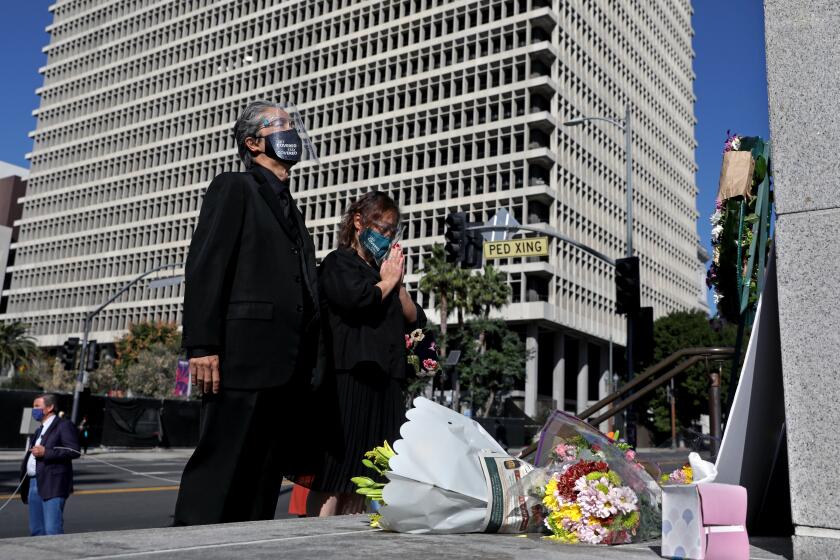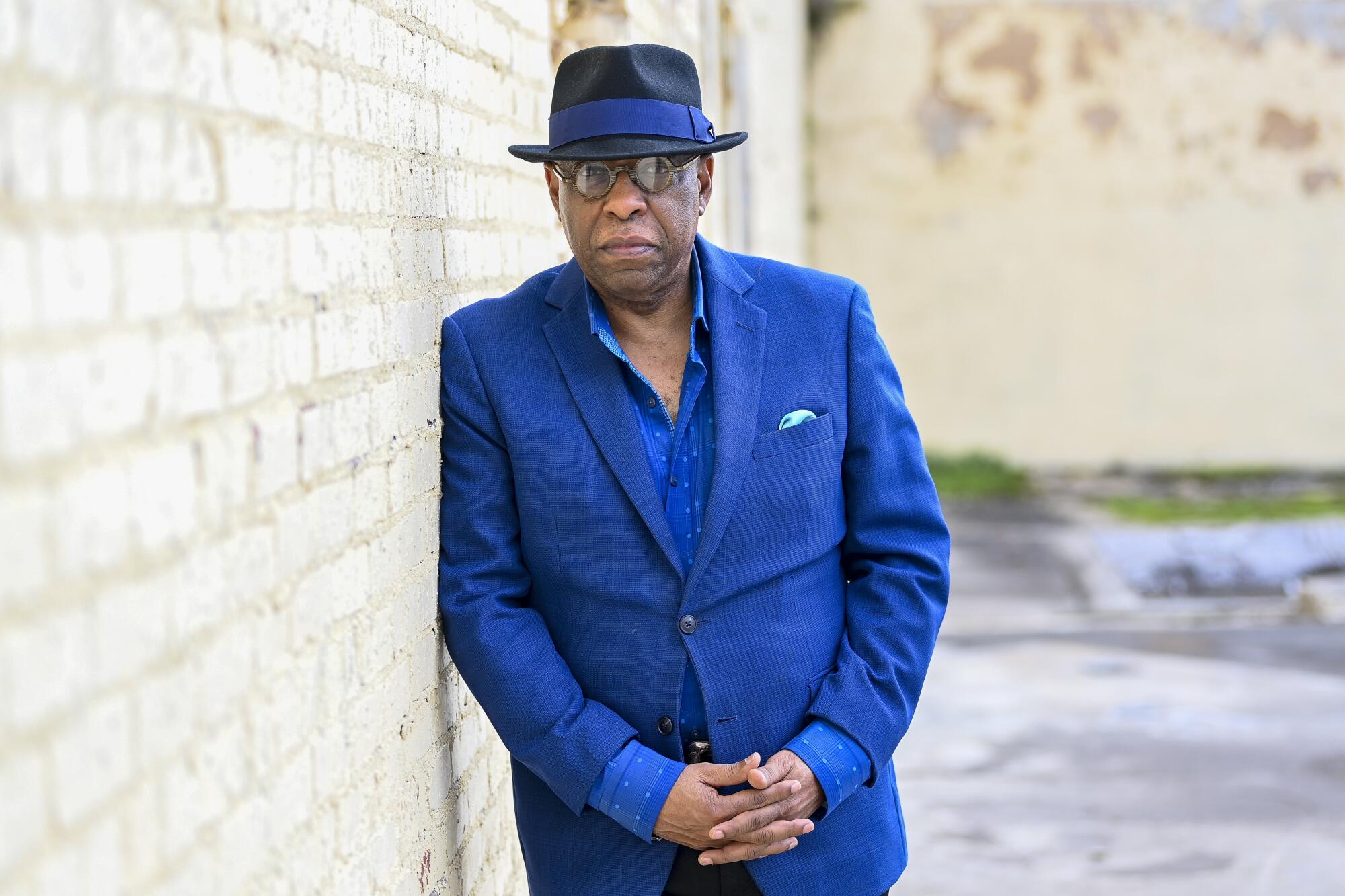
- Share via
TUSKEGEE, Ala. — Omar Neal often thinks back on the calculated betrayal of hundreds of Black men and how it still shapes so much about this rural Alabama community.
He remembers the mechanic who went from house to house fixing cars and the sharecropper who lived off a narrow dirt road. He thinks too of his uncle Freddie Lee Tyson, a carpenter, and how the betrayal shaped his life.
“These men believed so-called medical experts and were deceived,” said Neal, a lifelong resident of Tuskegee.
The name of the town evokes feelings of both pride and pain — for its legendary Black airmen and for the infamous government-backed healthcare study. For now, the legacy of the study, in which Black men with syphilis were left untreated for decades, stands front of mind for many contemplating whether to get a COVID-19 vaccine recommended by federal officials.
Neal’s uncle was among the more than 600 African American men from here who were enrolled under false pretenses in the deadly long-term health study coordinated and financed by the federal government beginning in the 1930s.
Because the government researchers behind the Tuskegee syphilis study wanted to track the disease’s full progression, they treated the Black men in the study like lab rats, withholding for decades lifesaving treatment under the guise of free healthcare.
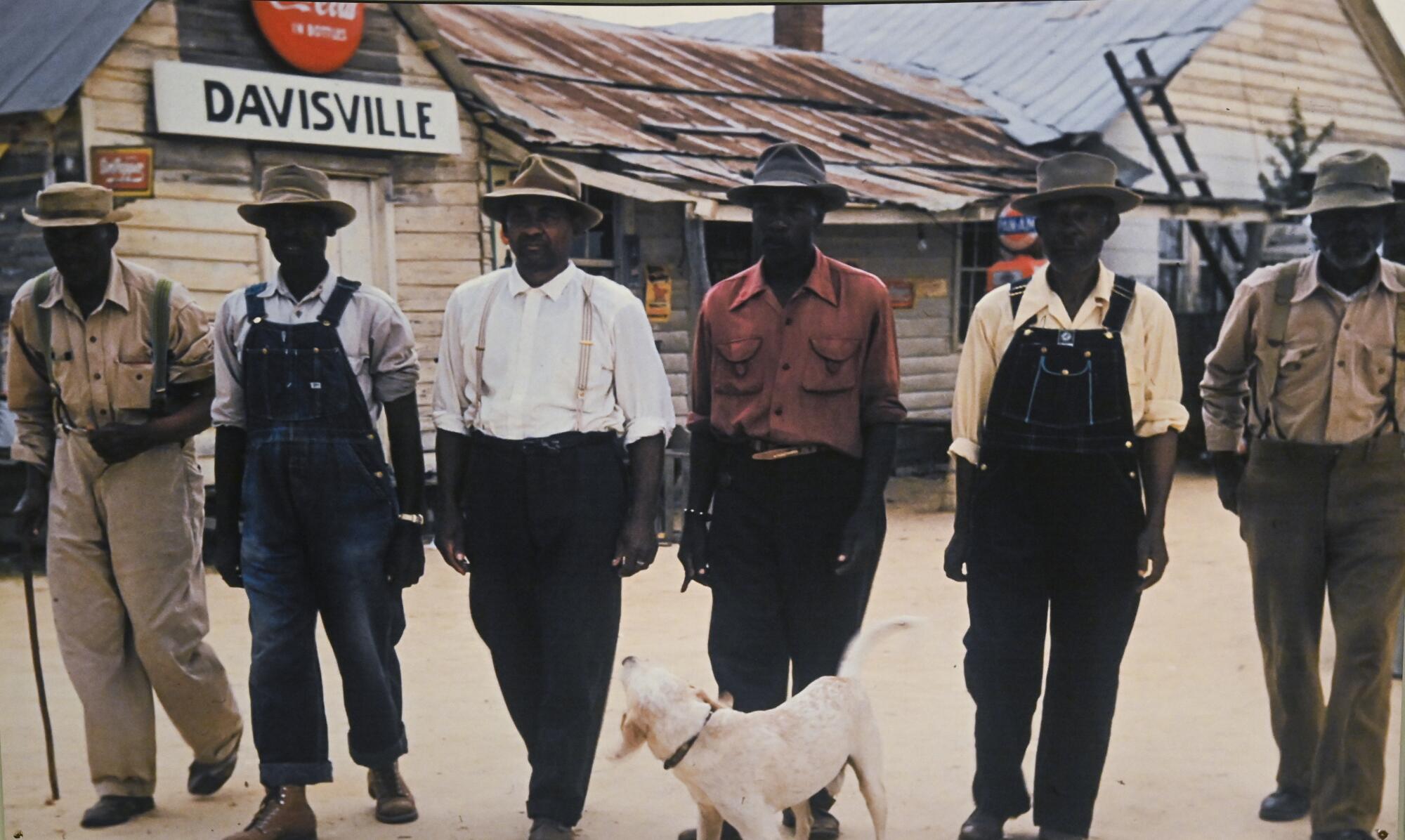
Before the full scope of the medical negligence was exposed in news reports in the 1970s, and later memorialized in congressional hearings, a stage play and films, more than two dozen men with untreated syphilis died and roughly 100 died of complications related to the disease.
“A trust in medicine, especially when the conversation is beginning with the federal government, is almost a nonstarter here,” said Tony Haygood, mayor of Tuskegee, 40 miles east of Montgomery, the capital. “The trust in the government to do the right thing has long been broken.”
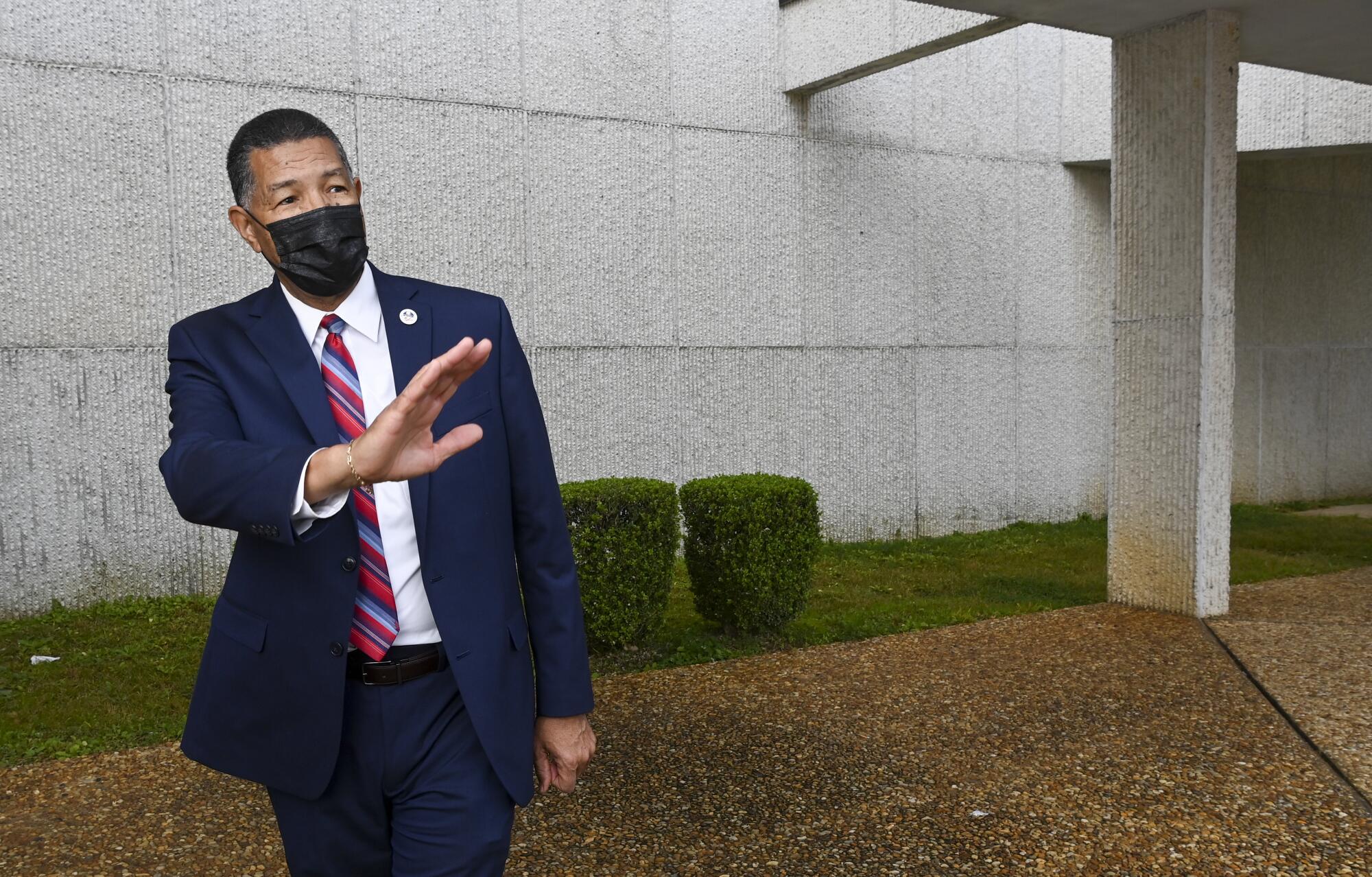
That history is on his mind, Neal said, when he thinks about the COVID-19 pandemic and government-led efforts to get as many Americans vaccinated as possible.
“It takes a lot,” he said, “for this community to rebuild trust in healthcare.”
Raw memories of the healthcare atrocity still echo through the thick woods that blanket this part of the Deep South, and they have only grown louder in recent months, as devastating coronavirus data confirm what many here have long known: Access to healthcare in America remains devastatingly unequal and shaped, in part, by structural racism.
The Los Angeles County Superior Court system is still holding in-person hearings despite the recent deaths of three court employees from COVID-19.
Throughout the pandemic, Black, Latino and Native American people have died at disproportionately high rates, according to Centers for Disease Control and Prevention statistics.
Yet at least partly as a result of the painful medical history, some Black people appear to be less inclined to be vaccinated against COVID-19, a measure most every reliable medical authority says will provide protection to individuals and the public at large.
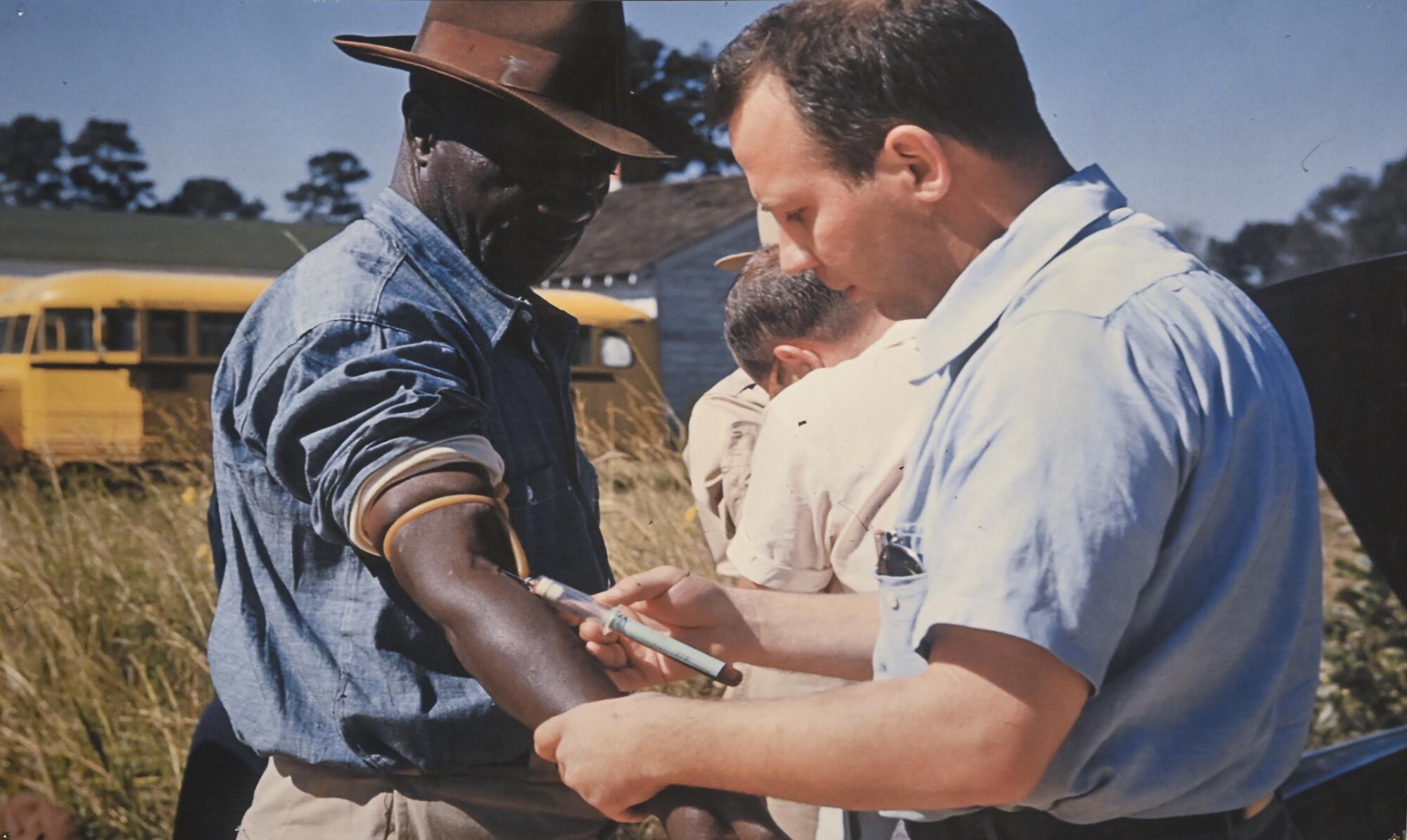
“There are historical trust issues due to failed and lack of research integrity in the past with such studies as the Tuskegee,” said Martha Dawson, president of the National Black Nurses Assn., who is based in Birmingham, Ala. “We still remember these cases and acknowledge the egregious behavior of the government and scientists.”
Here, as in much of the country, rollout of the vaccine in predominately Black communities — both urban and rural — has lagged behind other areas in the state.
Early data from 23 states showed white residents vaccinated at higher rates than Black residents, according to an analysis by Kaiser Health News. In neighboring Mississippi, Black vaccination rates are at 2% compared with 5.8% for white people.
In Los Angeles, officials have expressed concern about disparities, noting that healthcare workers in South L.A., a predominantly Black and Latino community, have been vaccinated at a significantly lower rate compared with healthcare workers from other regions.
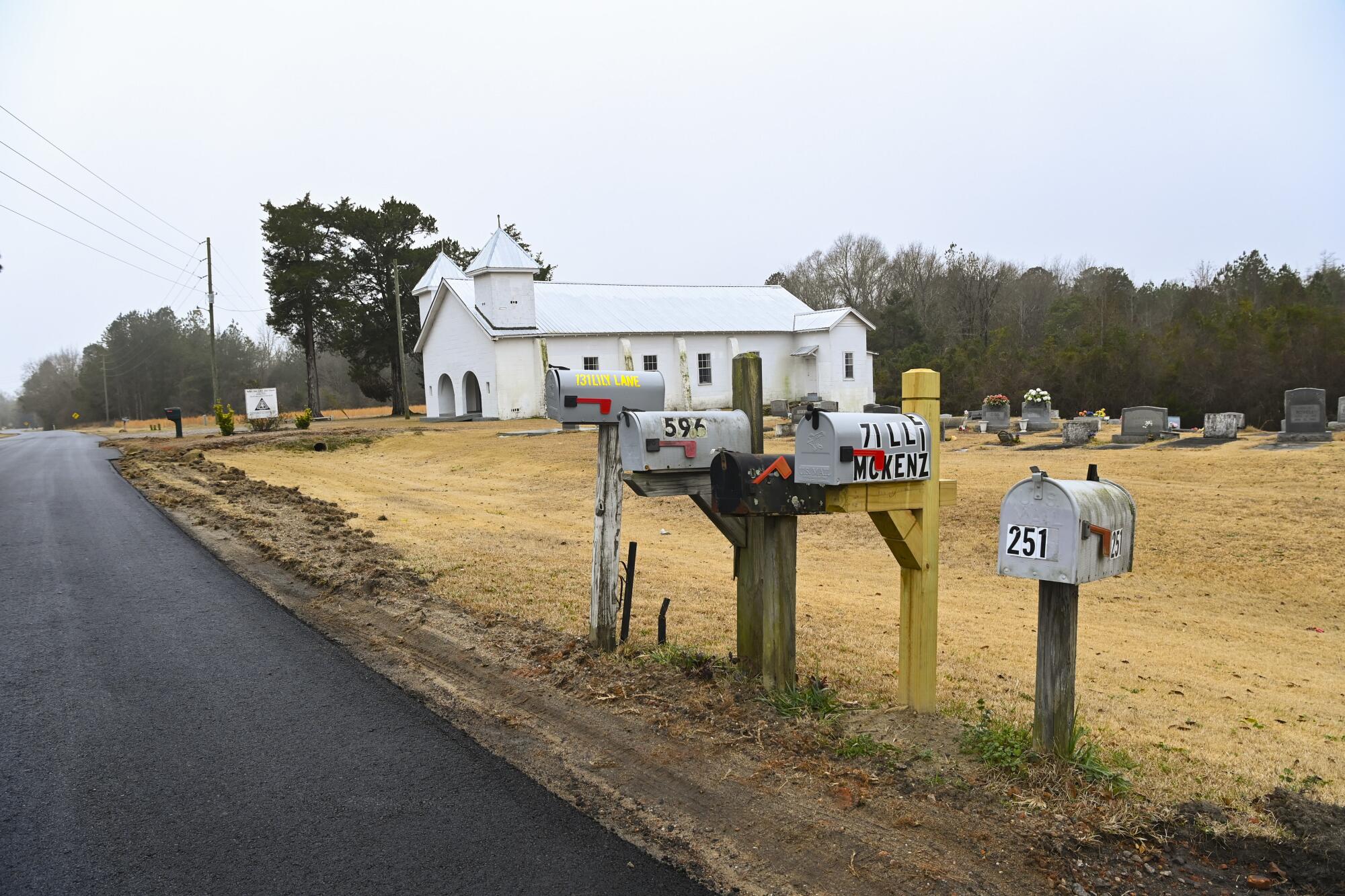
With roughly 3% of the American public having been fully vaccinated, the disparities, experts say, point not just to unequal access, but also to deep-rooted distrust of medical institutions, particularly when their efforts are backed by the federal government.
A nationwide poll conducted by the Pew Research Center in December found that Black people were less inclined to get vaccinated than other racial and ethnic groups. Forty-two percent said they would do so, compared with 63% of Latino and 61% of white adults. More recently, a poll from the National Foundation for Infectious Diseases found a slight uptick with 49% of Black adults saying they planned to get vaccinated.
Hesitancy is something that Haygood, Tuskegee’s mayor, has heard often in recent months. He represents a city in which 97% of the residents are Black Americans.
He’s talked to dozens of constituents about the pandemic and their concerns about vaccination. Back in December, he estimated, close to 60% of constituents would have opted against getting the vaccine. Now, he said, he thinks the number is closer to 40%.
The death last month of baseball legend Hank Aaron, an Alabama native, just days after getting vaccinated in a campaign to encourage more Black people to get the shots, has led to increased chatter online about hesitancy. But only to a point.
“For a long time I was the only voice that they had.”
— Fred Gray, 90, who was also counsel to Rosa Parks after her arrest in Montgomery
Many Black healthcare workers have already been vaccinated, including the first person in the nation to receive the vaccine in mid-December — a Black nurse who said she hoped to inspire others who look like her who might be skeptical of government-advocated vaccines.
And much of the community, experts say, feels quite open to the idea of getting vaccinated, so long as the shots are administered by a medical professional — and they’re even more comfortable if the medical worker is Black. Others have long been wary of vaccines of any type, including annual flu shots.
“African American and Black races and ethnicities have similar questions and concerns regarding the vaccine as others,” said Dawson of the nurses association. “Since we come from diverse backgrounds and experiences, we have to avoid promoting the concepts that we all think alike.”
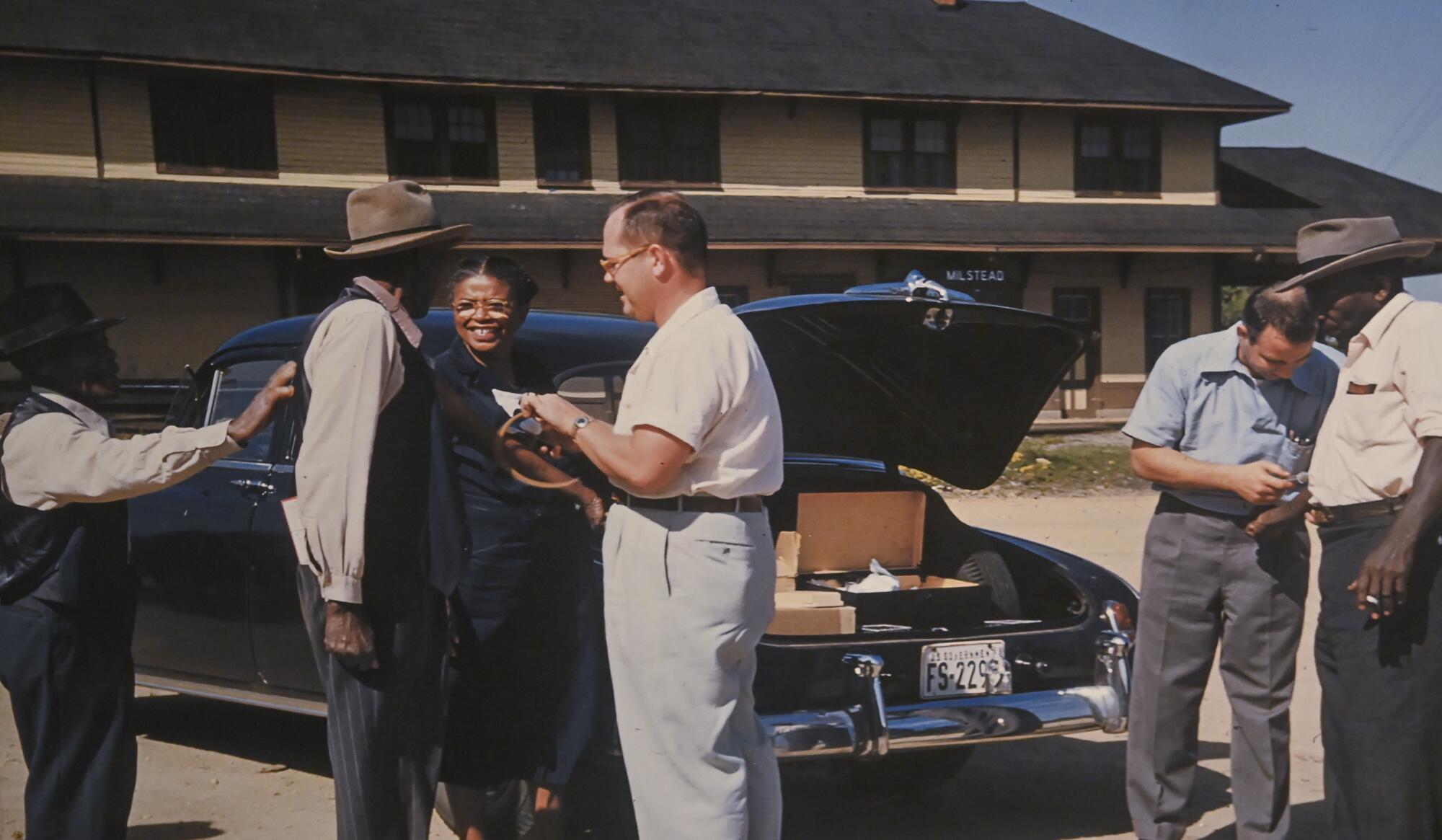
The infamous syphilis study began here in 1932 in the countryside on the outskirts of Tuskegee with a group of Black sharecroppers during the height of Jim Crow.
U.S. Public Health Service workers who had fanned out across this rural stretch of farmland and forest for years insisted they were providing free healthcare but withheld treatment from unsuspecting Black men who had syphilis. After patients died, the federal government did autopsies on their bodies for research.
By the latter 1940s, penicillin — an antibiotic that can kill the organism that causes the disease — was widely available, and yet doctors did not provide it.
The study didn’t end until 1972, when it was revealed by the Associated Press.
In the years that followed, civil rights attorney Fred Gray represented several victims in a civil suit, which resulted in a multimillion-dollar settlement and a 1997 apology by President Clinton.
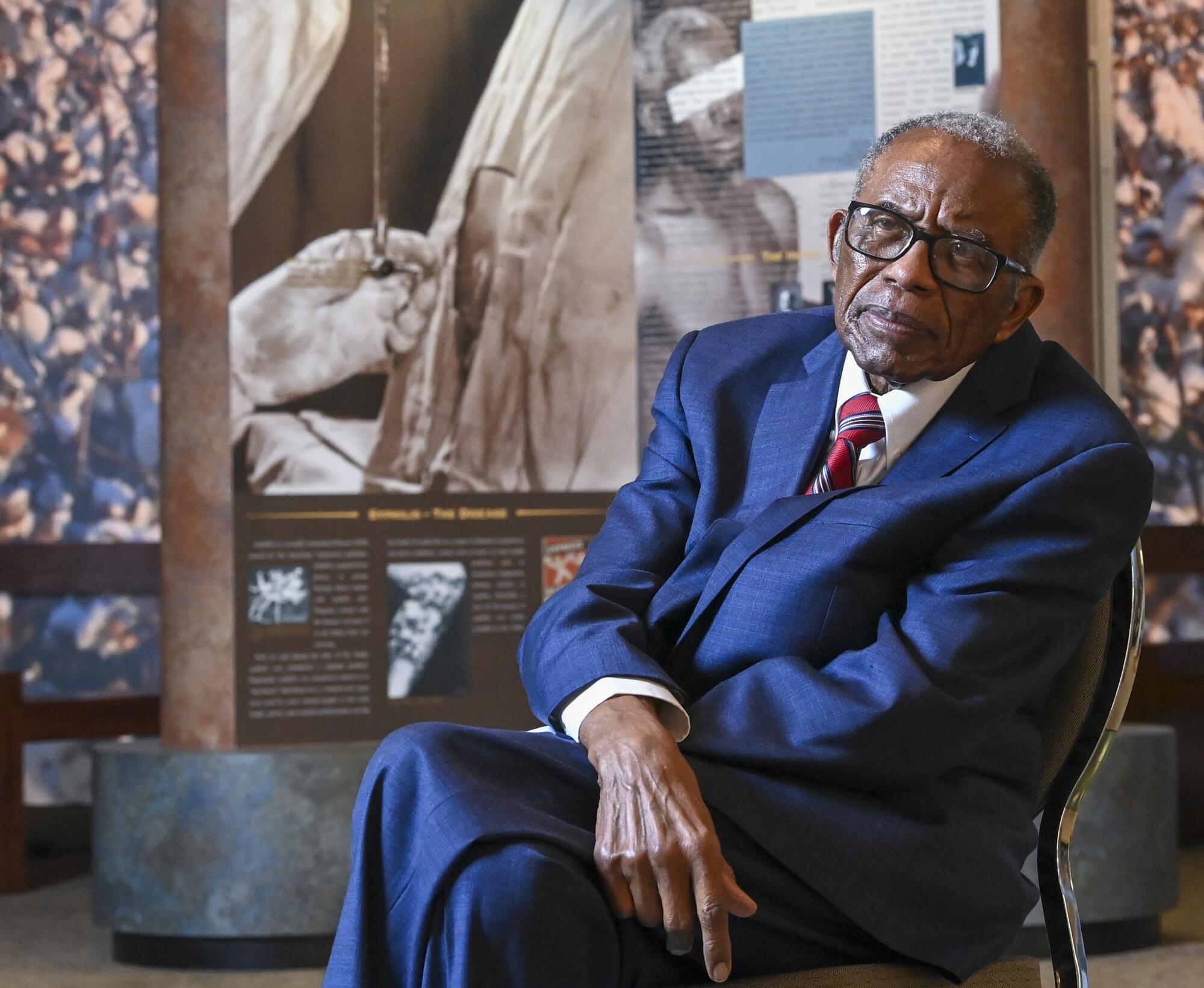
“For a long time I was the only voice that they had,” said Gray, 90, who was also counsel to Rosa Parks after her arrest in Montgomery in 1955.
As part of his advocacy, he said, he has worked with families of men in the study and helped open the Tuskegee Human and Civil Rights Multicultural Center here in their honor.
“Allowing those men to go that long without treatment was an American tragedy,” said Lillie Head, whose father, Freddie Lee Tyson, was a victim of the study. “Black folks have been treated so unfairly ever since we came to this country … not just medicine and overall — healthcare, education, you name it.”
Head, who is Neal’s cousin, said her father, an Alabama native, worked as a sharecropper before moving on to carpentry. He helped build Moton Field, the flight facility where the all-Black unit of military pilots, known at the Tuskegee Airmen, trained to fly, and later in life he and his family moved north to Connecticut, part of the Great Migration. A carpenters union steward, he had congenital syphilis but died from injuries in a car accident in the late 1980s, she said.
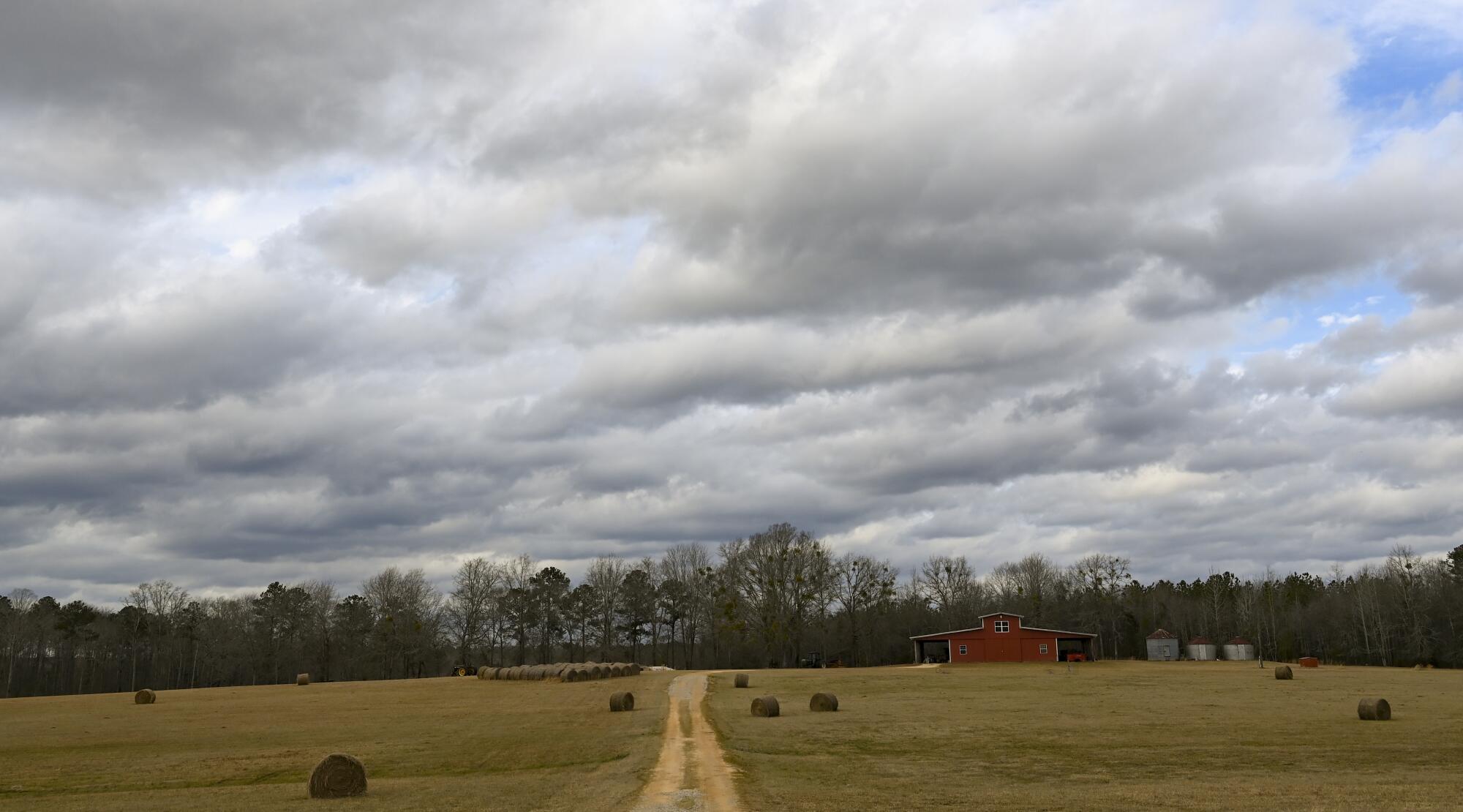
“My dad loved rural Alabama, he loved his community,” she said. “He was failed by his own government.”
Head now oversees a group, Voices for Our Fathers Legacy Foundation, which includes descendants of those in the study who gather for meetings over Zoom.
Janie Holmes, whose great-grandfather Alex Ware, a sharecropper, was a victim of the study, is a member of the group.
Holmes, 73, who still lives on a parcel of land here in rural Alabama, thought about her great-grandfather a lot recently as the COVID-19 vaccine rollout began.
“The treatment was despicable,” Holmes said on a recent evening, adding that particularly poor care for Black people continues to plague the American healthcare system. “This treatment still exists; this history is not that far off.”
Holmes, who is somewhat skeptical about getting the vaccine, said she planned to take a wait-and-see approach, wanting to avoid being one of the earliest to get it. While she had some concerns about side effects, Holmes said she has been reading research and will probably get vaccinated this spring.
“Like with anything,” she said, “it’s always good to do your own research.”
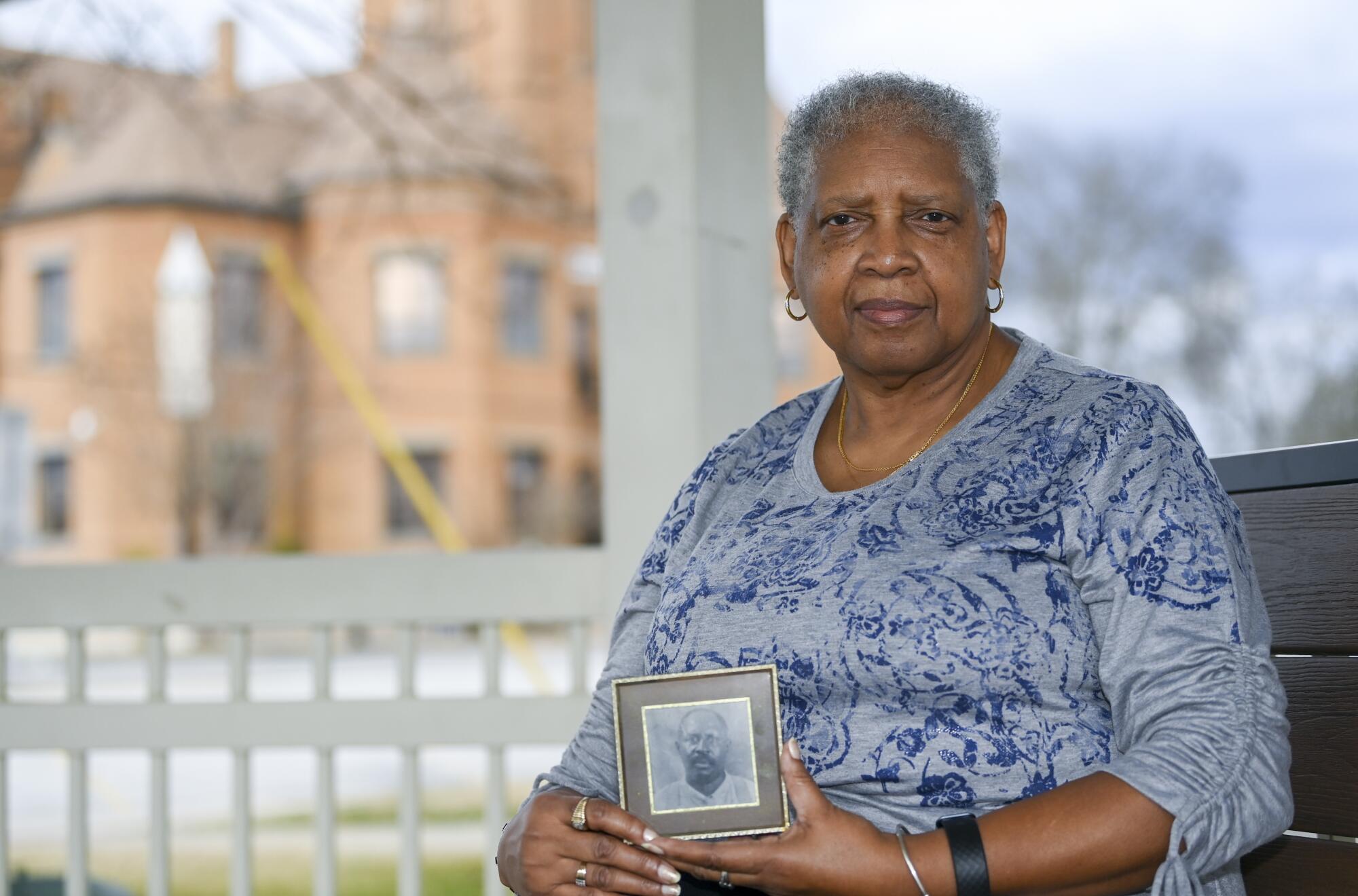
Haygood recently got his first dose of the Moderna vaccine, and video of the injection was posted to the city’s website. His predecessor, Johnny Ford, also received his shot in front of television cameras, urging a trust in science.
“Back at that time our people were victims,” Ford said. “Today we are part of the solution. We have African Americans who are involved in science, African Americans who are involved in developing the vaccine. We are part of the solution.
“We will never forget what happened 40 or 50 years ago with that infamous study,” he added. “This is 2021. And my message today: I am happy to be able to take the vaccine because I believe in science, I trust science, I trust God, and I’m encouraging others to do likewise.”
Despite its historical importance — metal placards around town recognize Parks, a local hero — Tuskegee has shrunk over the years, the result of white flight to Montgomery and the college town of Auburn. Also, a new highway several miles outside of town makes it easy to drive past.
On a recent afternoon, near the town square in Tuskegee where a Confederate monument sits draped in blue plastic, Neal and Holmes, who had not seen each other in several years, talked about the community they loved in spite of the pain their uncle and great-grandfather experienced.
“There is pride here in Macon County,” said Neal, 63, who served as Tuskegee’s mayor in the early 2000s.
“The civil rights movement, the study … ,” Holmes said, trailing off as she thought about it like a bad memory.
At the time, neither of them had yet gotten the vaccine, but Neal mentioned that he intended to and hoped Holmes would too.
“We all know the history here. … We were victims, our family members were victims,” he said. “But this is different. This is a health emergency, and if we have access to this vaccine we all need to take it.”
Head, in the long run, aims to remember these men and also to change the narrative around the study. The way history recalls the study, she says, so much emphasis falls on the place it happened — Tuskegee, a town known in academia for its historically Black university, historic military veterans, civil rights icons — and far too little on the perpetrators.
The study, Head believes, should be referred to as the United States Public Health Service Syphilis Study in Tuskegee and Macon County, Ala.
“This is a small step,” she said. “This was the U.S. government’s wrongdoing.”
More to Read
Sign up for Essential California
The most important California stories and recommendations in your inbox every morning.
You may occasionally receive promotional content from the Los Angeles Times.
